Imagine this: You’re in the middle of a woodworking project, and you reach for that bottle of glue that’s been gathering dust in your toolbox for years. As you apply it to the wood, you start to wonder whether glue ever expires. Will it still hold up over time?
You’re not alone in this dilemma, my curious friends. Many people have pondered whether their old glue is still good to use. But the answer isn’t always straightforward.
There are various types of glue available, from white school glue to super glues and epoxy adhesives, each with its own specific shelf life. The lifespan depends on factors such as chemical composition, storage conditions, and other variables.
In this blog post, we’ll delve into the world of glue expiration dates. We’ll explore different types of adhesive and how long they typically last. Plus, we’ll share tips on how to properly store and care for your adhesives so that they stay useful for as long as possible.
Whether you’re a DIY enthusiast or just someone who’s curious about the world of adhesives, come along with me as we uncover the truth about whether glue ever truly expires.
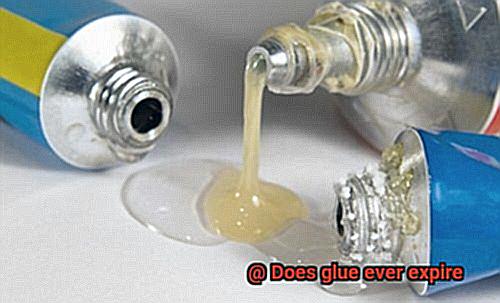
Does Glue Expire?
Contents
Glue is an essential item found in every household. It comes in handy for various purposes, be it arts and crafts, DIY repairs, or woodworking. However, the big question remains- does glue expire? As an expert on this matter, I am here to provide you with all the information you need.
The answer is yes- glue has a shelf life, and it depends on the type of glue and its storage conditions. Generally, most glues last for one to two years from their manufacturing date. Nevertheless, exposure to extreme temperatures or humidity can cause glue to expire earlier than expected.
When glue expires, it becomes less effective in bonding surfaces together. The chemicals in the glue break down over time, resulting in a less sticky and weaker adhesive. Also, expired glue may have a different consistency or color than when it was first purchased.
Hence, it is imperative that you check the expiration date on your glue before using it for any project or repair. If you are unsure if your glue has expired, perform a simple test by applying a small amount of glue to a scrap piece of material and allowing it to dry. If the glue does not dry clear or does not adhere well to the surface, it’s best not to use it for important projects or repairs.
Proper storage conditions can help extend the shelf life of glue. Always store it in a cool, dry place away from direct sunlight and extreme temperatures. However, it’s always better to err on the side of caution and replace expired glue with fresh adhesive for optimal results.
Types of Glues and Their Shelf Lives
The shelf life of glue is determined by its type and storage conditions. In this article, we will explore the different types of glue available and their respective shelf lives.
White Glue:
White glue, also known as school glue or PVA glue, is a popular adhesive used for arts and crafts projects, paper mache, and woodworking. When stored in a cool and dry place, white glue can last for about one year if unopened. Once opened, it can last up to six months if tightly capped after every use. After its expiration date, the glue may become thick and difficult to work with.
Super Glue:
Super glue or cyanoacrylate glue is a fast-acting adhesive used for bonding metal, plastic, and wood. Unopened super glue can last for up to one year when stored at room temperature. Once opened, it can last for just a few weeks to a few months if tightly sealed after every use. Exposure to air or moisture can reduce its effectiveness over time.
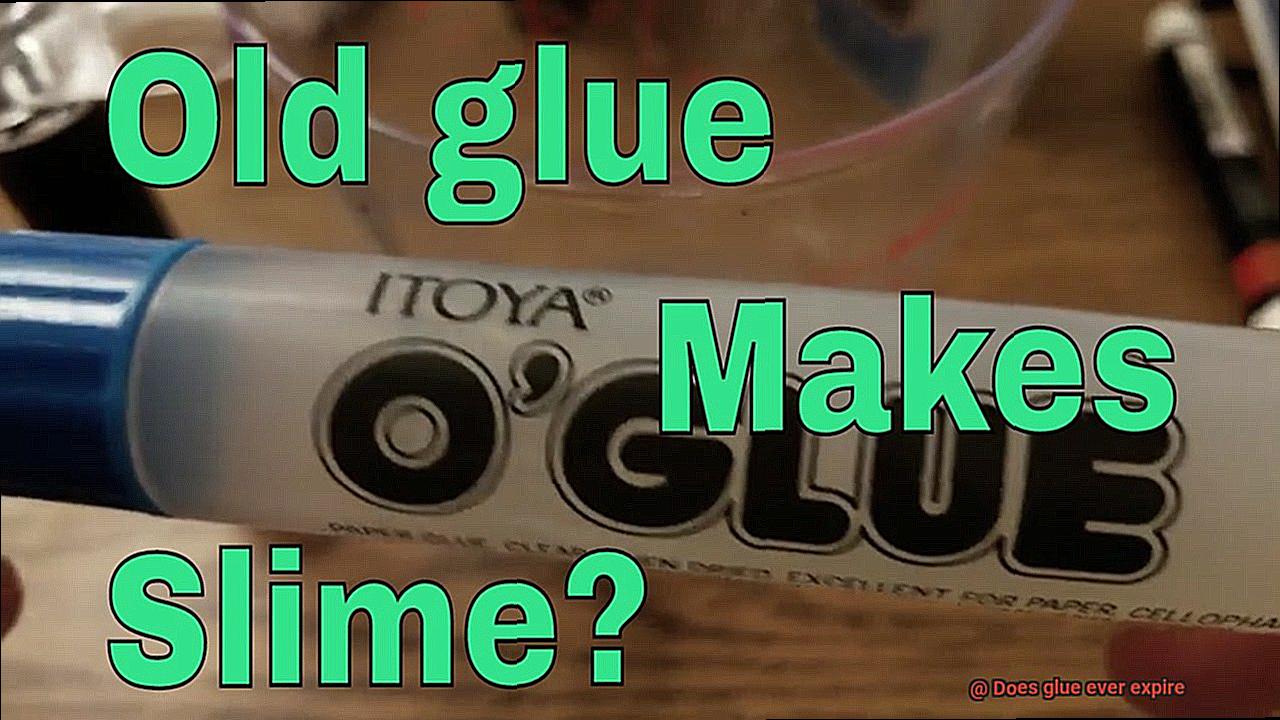
Epoxy:
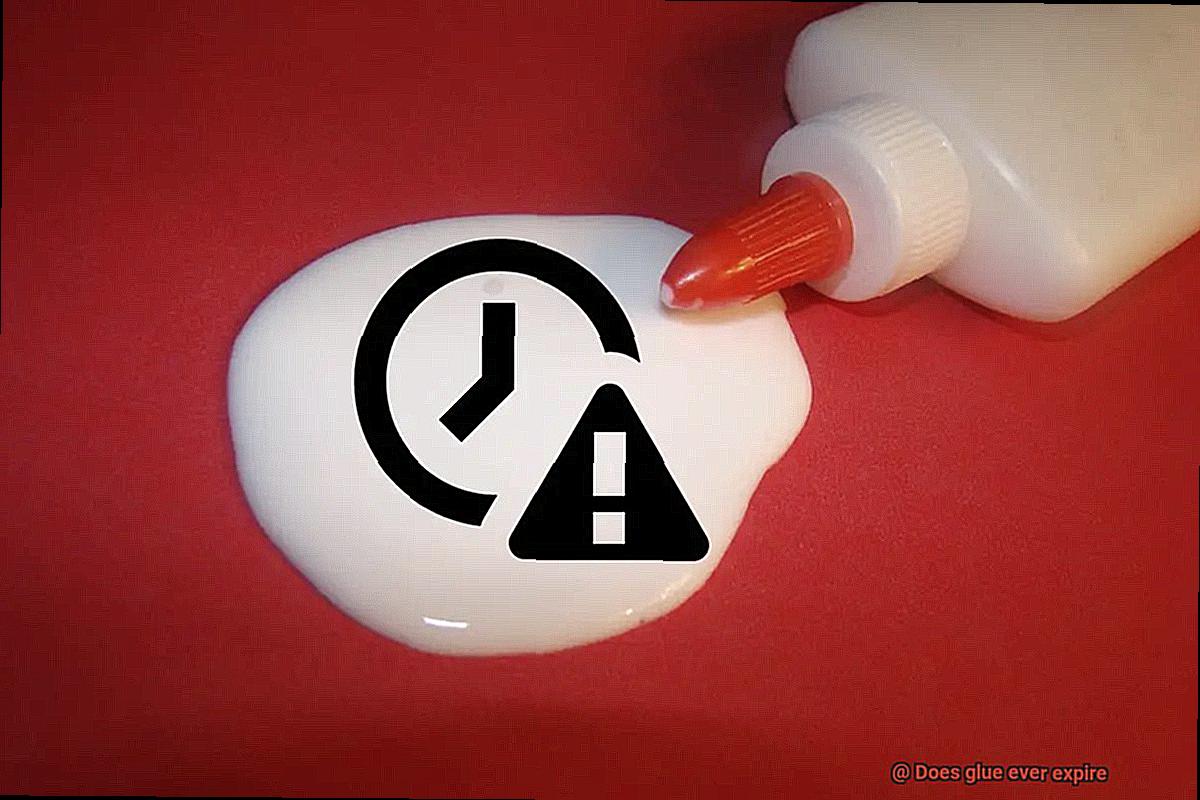
Epoxy glue is a robust adhesive used for bonding metals, ceramics, plastics, and wood. When stored in a cool and dry place, unopened epoxy can last for up to two years. Once opened, it can last up to six months if tightly capped after every use. Excessive heat or exposure to sunlight can reduce its effectiveness.
Hot Melt Glue:
Hot melt glue or hot glue is commonly used in arts and crafts projects, fabric work, and foam bonding. Unopened hot melt glue can last for around one year when stored in a cool and dry place. Once opened, it can last up to three months if tightly capped after every use. However, hot melt glue may become brittle over time.
Factors That Affect Glue’s Shelf Life
It’s time to understand the factors that affect the shelf life of your adhesive.
The type of glue is a crucial factor in determining its shelf life. Different adhesives have varying chemical compositions, which affect their durability. For example, super glue has a shorter shelf life than polyurethane or epoxy. Before purchasing any adhesive, it’s important to determine how long you need it to last.
Proper storage is another essential factor in extending the lifespan of your glue. Keeping it in a cool, dry place that is free from extreme temperatures or humidity is imperative. Exposure to heat or moisture can cause degradation and loss of effectiveness over time. Additionally, light exposure can also be problematic for certain types of glue as ultraviolet (UV) radiation can cause chemical reactions that break down the glue’s bonds.
Even if glues come with expiration dates printed on their packaging, older adhesive may still lose its effectiveness over time due to exposure to environmental factors or changes in its chemical composition.
Your glue’s usage requirements should also be taken into consideration. For example, high-stress applications or exposure to harsh chemicals or solvents will significantly reduce its lifespan. If your project demands a strong bond, it may be necessary to replace the glue more frequently.
How to Store Glue for Maximum Shelf Life
Storing glue properly is essential to ensure it retains its effectiveness for as long as possible. Here are five sub-sections to guide you on how to store glue for maximum shelf life.
Store in a Cool, Dry Place
One of the most important tips is to keep your glue in a cool, dry place. Extreme temperatures can cause the glue to break down and lose its effectiveness. Avoid storing glue near windows or in the garage, where temperatures can fluctuate. Instead, store it in a cupboard or closet in a room that maintains a consistent temperature.
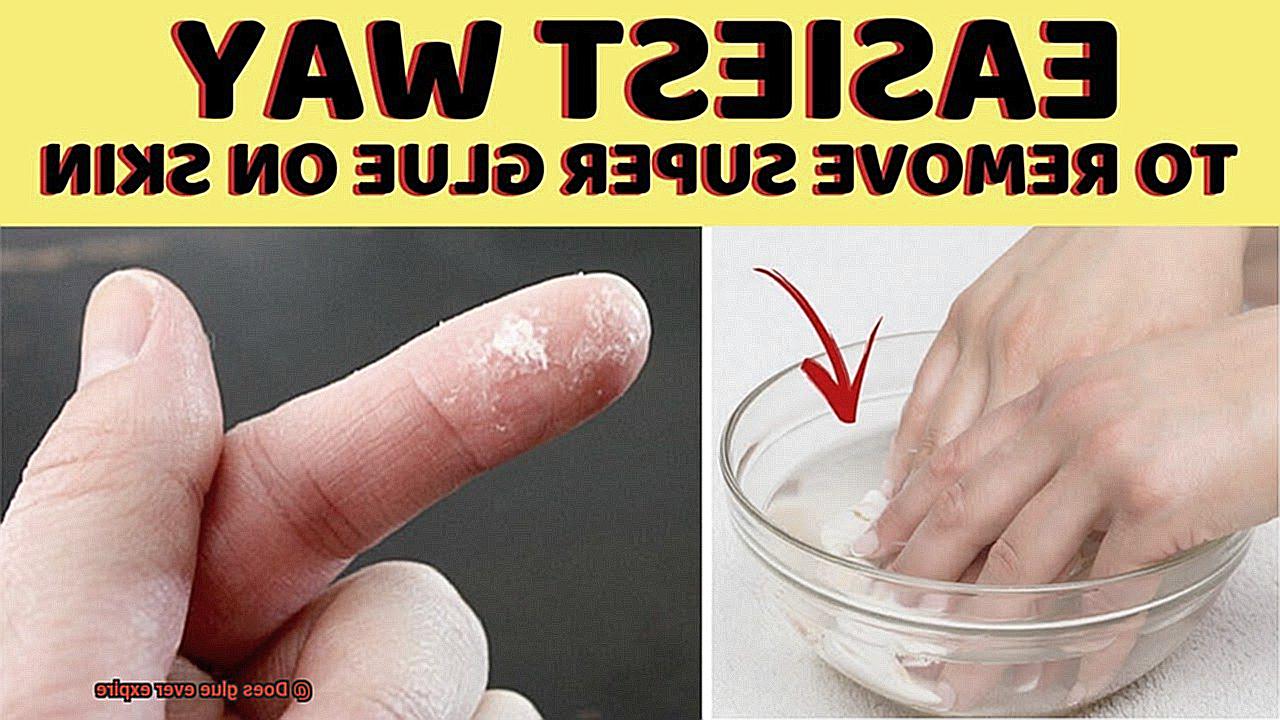
Keep the Container Tightly Sealed
When not in use, always make sure to keep the glue container tightly sealed. Exposure to air can cause the glue to thicken or dry out, making it unusable. Always store your glue in its original container with the lid tightly closed between uses.
Use an Airtight Container
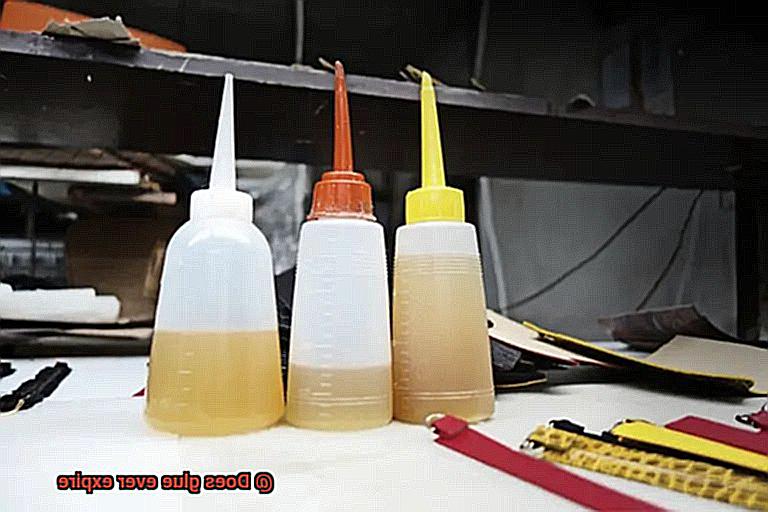
If you’ve opened the glue container and need to store it for future use, transfer the glue to an airtight container. This will prevent air from entering and causing the glue to dry out. It’s important to label the container with the type of glue and date of transfer.
Keep Out of Reach of Children and Pets
Glue can be harmful if ingested or misused, so always keep it out of reach of children and pets. Store your glue on high shelves or in locked cabinets where curious little hands and paws cannot reach it.
Check Expiration Date and Test Adhesive Strength
Most glues have an expiration date printed on the label or packaging, indicating the recommended period for optimal performance. So, before using any glue, make sure you check the expiration date. Expired glue may not be entirely ineffective, but its adhesive strength may weaken over time, making it unsuitable for specific tasks. Always test its adhesive strength before applying it to any surface.
What Happens When Glue Expires?
As an expert on the matter, I’m here to provide you with the answers.
Firstly, when glue expires, its adhesive properties weaken, causing the bond between materials to become less strong. This is due to the breakdown of chemicals in the glue over time. So, if you use expired glue, your project may not hold up as well as it should.
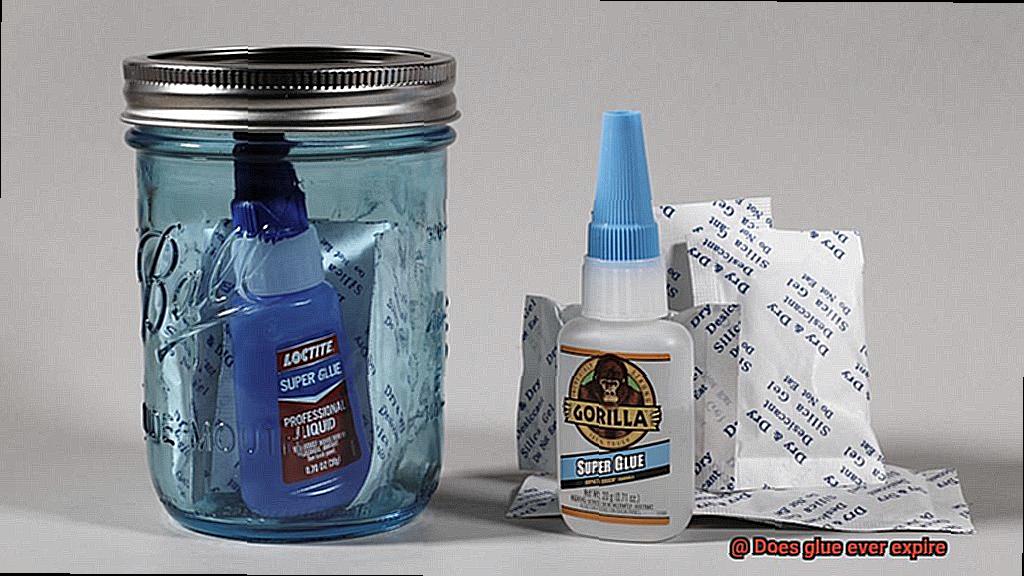
Another issue that arises with expired glue is discoloration. Glue exposed to air and sunlight for prolonged periods can turn yellow or brown, making it unsightly and ruining the overall appearance of your project. This discoloration is also a sign that the glue is no longer effective.
Changes in texture are another common problem associated with expired glue. The glue can become thick, lumpy or stringy over time, making it challenging to apply evenly and causing it to clump or dry out before bonding properly.
To prevent these issues, store your glue in a cool, dry place with a tight seal to avoid air exposure. If you’ve already opened the glue, transfer it to an airtight container and label it with the type of glue and date of transfer. It’s also essential to check the expiration date and test its adhesive strength before using it on any surface.
Signs That Glue Has Expired
As the saying goes, all good things must come to an end – even your favorite bottle of glue. But how can you tell when your adhesive has reached its expiration date? Don’t worry, we’ve got you covered. Here are the top signs that your glue has expired and it’s time to say goodbye:
Firstly, take a close look at the consistency of your glue. If it has become thicker, clumpy or stringy, it’s a clear sign that the glue has passed its prime. This is especially true for liquid glues like PVA or wood glue, which tend to be more susceptible to changes in texture.
Secondly, give your glue a whiff. If it has an unusual and unpleasant odor or emits a strong chemical smell, it’s a tell-tale sign that the adhesive is no longer usable. This is especially important if you plan on using the glue in an enclosed area where harmful fumes could pose a safety risk.
Thirdly, check if your glue has dried out. If it’s no longer tacky or sticky, it’s likely that the adhesive has expired. This often happens when the container has not been sealed tightly after use, allowing air to seep in and dry out the glue.
Fourthly, look out for any separation of the glue. If the adhesive separates from water or other solvents, it’s an indication that the glue is past its prime and not suitable for use.
Lastly, pay attention to the performance of your glue. If it’s not adhering to surfaces properly or failing to bond altogether, it could be a sign of expiration. This could ruin your project and cause frustration if not caught early on.
It’s important to note that different types of glue have different shelf lives and expiration dates, so always check the label for guidance. Additionally, proper storage is crucial to keep the glue from expiring prematurely.
Always store your glue in a cool, dry place away from direct sunlight and heat sources. By following these guidelines and keeping an eye out for signs of expiration, you can ensure that your glue will remain effective for its intended purpose.
How to Test the Adhesive Strength of Expired Glue
In this post, we will explore five different methods to test the adhesive strength of expired glue.
The Importance of Testing Expired Glue
Before we dive into the testing methods, let’s first understand why it’s crucial to test expired glue. As glue ages, its chemical composition changes, leading to weaker adhesive properties. This can result in damage to the objects you are trying to bond. By testing the adhesive strength of expired glue, you can determine whether it is still suitable for use.
Test on Non-Porous Surfaces
One way to test the adhesive strength of expired glue is by applying a small amount to a non-porous surface like glass or metal. After allowing the glue to dry completely, use a plastic scraper or credit card to gently pry the glue away. If it comes off easily or leaves a residue, it may have lost its adhesive strength and could be expired.
Pull Apart Test
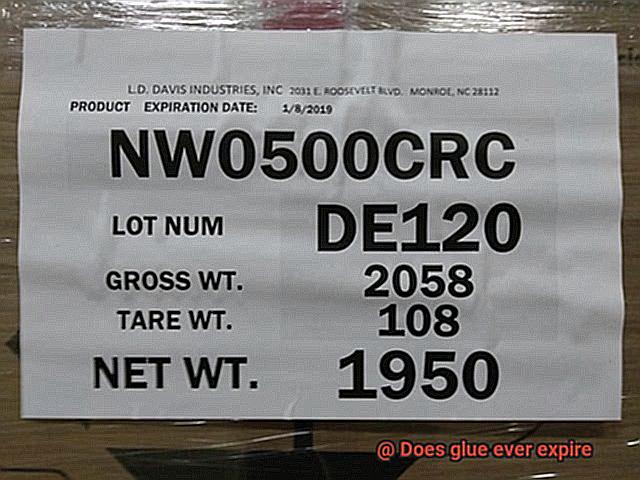
Another method is to apply a small amount of glue to a test surface like cardboard and let it dry completely before attempting to pull two surfaces apart. If the glue easily separates or does not hold the surfaces together, it may be expired and not suitable for use.
Rubbing Test
You can also try rubbing a small amount of dried glue on your fingertip. If the glue easily rubs away, it may have expired and lost its adhesive strength.
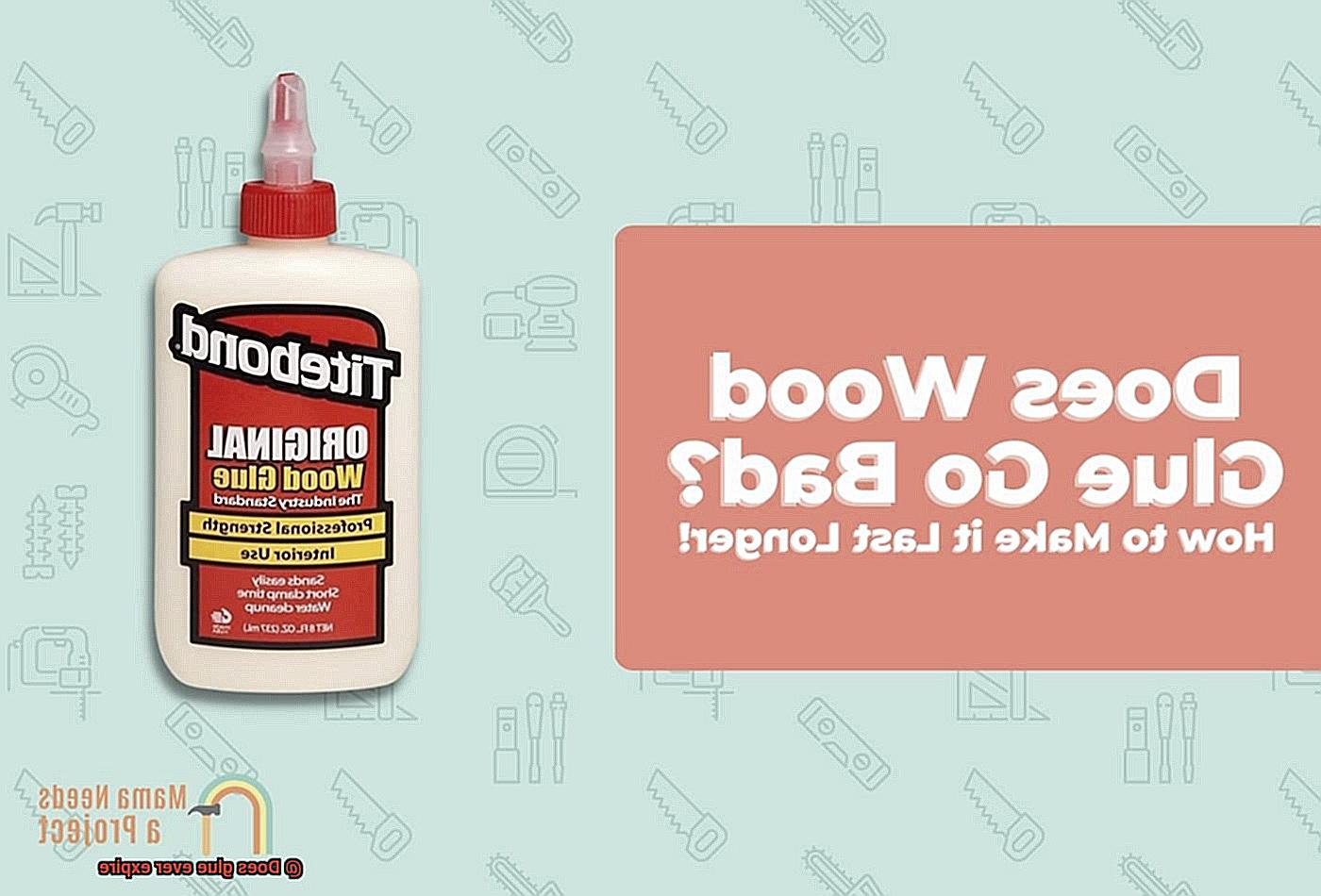
Lifting Test
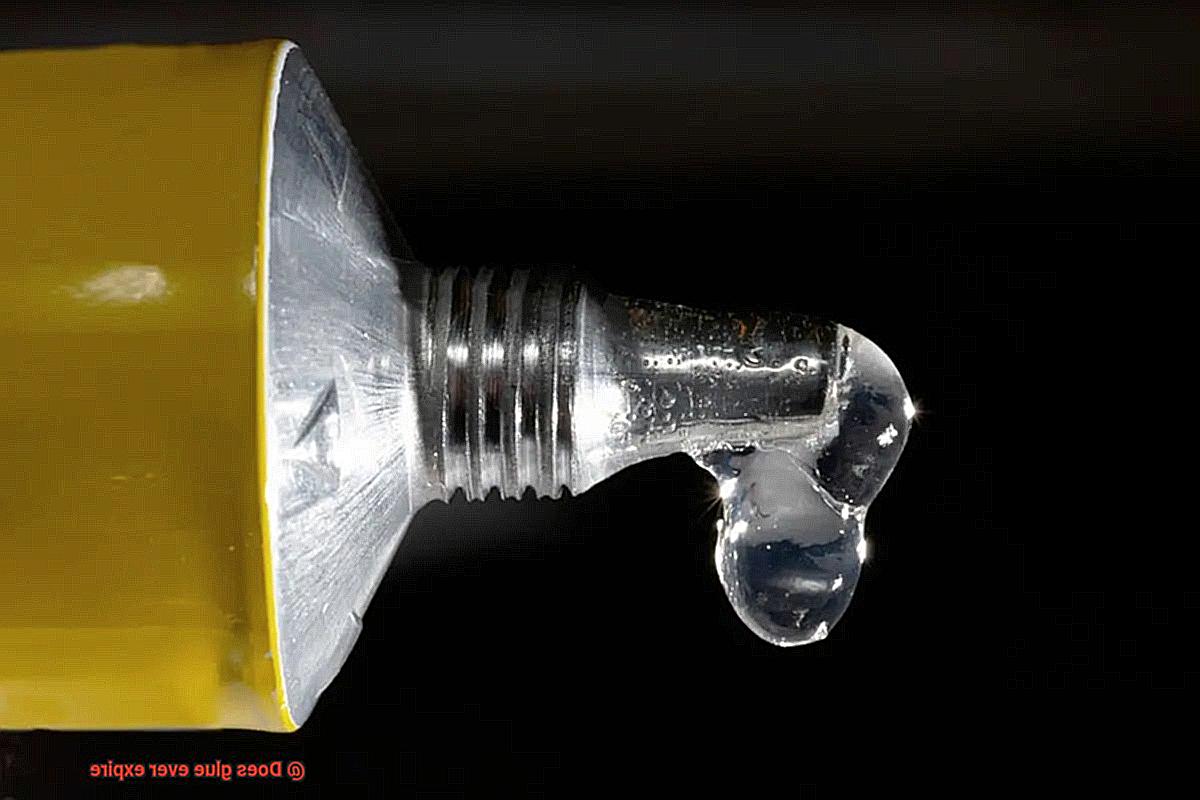
Lastly, apply the glue to a test surface and place a heavy object on top of it for some time. After removing the object, attempt to lift the glued item off the surface. If it lifts away easily, the glue may have lost its adhesive strength.
It’s crucial to note that these tests are not foolproof and may not give an accurate representation of all expired glues’ adhesive strength. It’s always best to use fresh glue for important projects where a strong bond is necessary.
Tips for Using Expired Glue
Don’t toss it just yet. With these tips, you can still get the most out of your adhesive and complete your projects successfully.
Test it Out
Before using expired glue, it’s essential to test it on a small piece of scrap material. This will give you an idea of whether the glue is still effective or not. If the glue doesn’t bond correctly or dries out too quickly, then it’s probably time to dispose of it.
Add Some Heat
Expired glue can benefit from some added heat to activate the adhesive properties. You can use a hair dryer or a heat gun to warm up the surfaces that need bonding. The heat will help the glue to activate and bond the surfaces together.
Thin Out the Glue
If your glue is too thick, you can add a little bit of water to thin it out. This will make it easier to spread and help rejuvenate the adhesive. However, be cautious not to add too much water, as this can weaken the bond.
Apply in Thin Layers
To prevent the glue from drying out too quickly, apply it in multiple thin layers. This approach can also ensure a stronger bond, making it ideal for non-critical projects.
Store Properly
To prevent your glue from expiring in the first place, make sure to store it properly. Keep your glue in a cool, dry place away from direct sunlight and heat sources to keep your adhesive strong for longer.
-rcdfvNkxUY” >
Conclusion
In conclusion, the question of whether glue ever expires is not a simple yes or no. The lifespan of glue hinges on several factors such as its chemical composition, storage conditions, and other variables. Generally, most glues last for one to two years from their manufacturing date. However, exposure to extreme temperatures or humidity can cause glue to expire earlier than expected.
It’s worth noting that different types of glue have different shelf lives. For instance, white glue can last for about a year if unopened and up to six months if opened and tightly capped after every use. On the other hand, superglue or cyanoacrylate glue can last for up to a year when stored at room temperature if unopened but only a few weeks to a few months once opened.
To extend the shelf life of your glue, proper storage conditions are essential. Always keep it in a cool, dry place away from direct sunlight and heat sources. Additionally, store it in its original container with the lid tightly closed between uses.
If you’re unsure whether your glue has expired or not, perform a simple test before using it for any project or repair. If the glue doesn’t dry clear or doesn’t adhere well to the surface, it’s best not to use it for critical projects or repairs.
By following these guidelines and keeping an eye out for signs of expiration, you can ensure that your glue will remain effective for its intended purpose. And even if your glue has expired, there are still ways to get the most out of it by testing it out and using some helpful tips like adding some heat or thinning out the adhesive.






